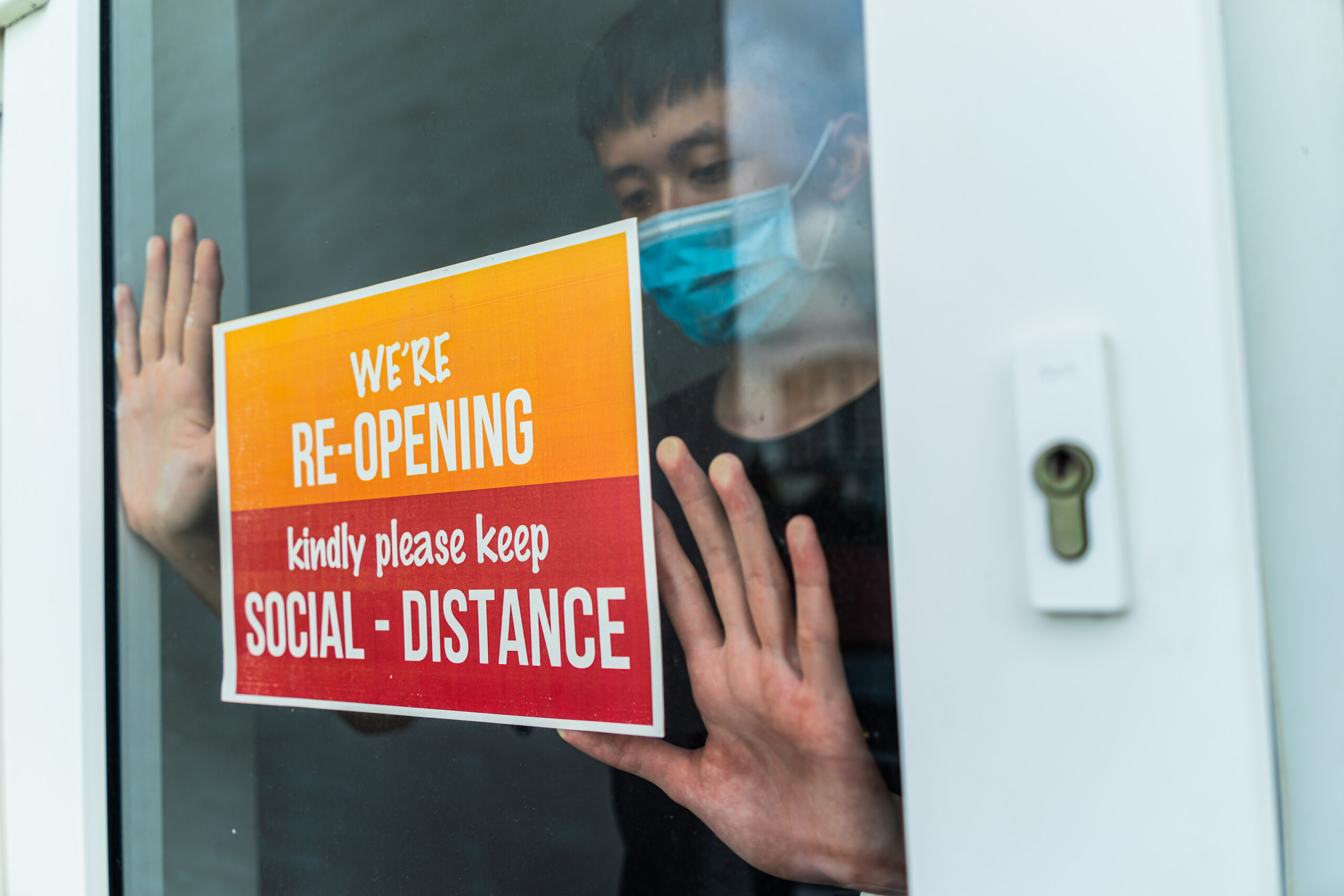Catalist-listed restaurant operator No Signboard Holdings Ltd. recently requested a trading suspension, citing the continued challenges in the local food and beverage (F&B) industry including the dining restrictions caused by COVID-19.
Amidst this challenging business environment, businesses are fighting hard to adapt and transform themselves. Resilience, it is said, is the key to survival. Indeed, in the recent 27th Enterprise 50 (E50) Awards, the winners were recognised for proactively transforming and reinventing their business models to thrive amidst the COVID-19 pandemic.
However, all of this can present a dilemma. Take a hypothetical company in the F&B industry (without reference to No Signboard Holdings Ltd) as an example. Should this hypothetical company continue to incur operating costs of its restaurants even when dine-in restrictions have eroded profits? Should it reinvent itself to offer a different F&B service? Or should it throw in the towel to exit the F&B industry?
A director of the company facing the dilemma will have to evaluate the personal risk of each option.
If the director decides to exit the industry by letting the company go into liquidation, he or she loses what has been built up. But assuming no fraudulent practices, no personal liability is attached. The separate legal entity of the company ensures that a company’s losses is generally borne by the company and not by its directors. The director loses his livelihood if he is an executive director, but if the liquidation is due to the pandemic, arguably there is no reputational loss. In fact, liquidation can be advantageous to the director who can start a new business on a clean slate.
Conversely, if the director tries to salvage the company by adapting or transforming the business in the name of resilience, a different situation emerges. The director will be incurring new liabilities for the company when the company may already be insolvent, and that itself triggers a concept called wrongful trading. The stinger in wrongful trading is that the director takes on personal liability.
Is wrongful trading a curse on the resilient director during the pandemic?
What is wrongful trading? Under the Insolvency, Restructuring and Dissolution Act (IRDA), wrongful trading occurs when a company incurs debt or liabilities while it is insolvent (or while it is solvent but it becomes insolvent as a result), without reasonable prospect of meeting them in full. Once there is wrongful trading, the law imposes both criminal liability and civil liability on the director if it is shown that he or she ought to have been aware that the company engaged in wrongful trading. Criminal liability works as a strong deterrent. However, it is the civil liability that the unpaid creditor will pursue to recover monetary losses.
Does civil liability for wrongful trading under the IRDA have real “bite”? The short answer is yes. The parliamentary speech accompanying the provision reported that its predecessor in the Companies Act was unsatisfactory as criminal liability had to be found first before civil liability could be pursued. Hence, wrongful trading was enhanced under the IRDA to allow civil liability to be imposed even if there is no prior criminal conviction. Further, the IRDA provisions give the court more flexibility in allocating compensation, meaning that the creditor pursuing the civil liability may get payment first compared to other creditors, even if the company is in liquidation. This incentivises creditors to pursue civil action for wrongful trading. All of this translates to the IRDA civil liability having more bite.
However, the IRDA has new features which the resilient director can tap on. One important feature is the relief provision. Under this provision, even if a court finds that there was wrongful trading, it can grant relief to a director if he acted honestly and “having regard to all the circumstances of the case” ought “fairly to be relieved” from personal liability. A director who entered into a risky contract in an honest belief that it was crucial to surviving the pandemic can make a case for this relief. Even in the worst-case scenario where the court feels that the director overstepped the limits of rationality and took too much of a risk, the court has the discretion to grant partial relief, meaning personal liability is attached but not to the full amount claimed by the creditor.
Will the court exercise its discretion in a flexible way to grant relief? We can be optimistic that it will, based on two objective observations in corporate law.
First, in similar relief mechanisms in our Companies Act (section 391) as well as in UK and Australian law, an earlier study observed that courts have exercised their discretion in a flexible manner to take into account varied factors. While not every case was successful, it shows the courts’ willingness to consider the unique circumstances of each situation.
For example, in a Singapore case where an auditor sought relief under section 391 of our Companies Act, the court granted a 50 per cent relief on the basis that the directors of the company which had engaged the auditor were just as negligent as the auditor. In the analysis of section 391, the court agreed that it ought not to shrink from giving effect to its intuitive sense of fairness and justice, and stated that it should not hesitate, in a proper case, to relieve a person from a harsh and oppressive consequence of a strict application of the law.
Second, in another area of corporate law called unfair preference, the courts’ approach towards scrutinising directors’ actions when the company is insolvent is insightful. There, the courts have tirelessly checked that a requirement – that the director was influenced by a desire to give preference to the creditor – was met before ruling that the action was wrongful.
In a Singapore case, the judge went further to comment that the requirement was important, otherwise “every payment to a creditor during the critical six months preceding a winding-up petition” would be void. Underlying all this is a recognition that too harsh a hindsight criticism of directors’ efforts in salvaging the company would produce an undesirable outcome of directors abandoning all rescue efforts for fear of personal liability.
In the same vein, the courts will know that an unduly rigid approach to granting relief for wrongful trading can produce an undesirable outcome of excessive risk aversion of directors, and abandonment of attempts to salvage the company. Conversely, a flexible approach to granting relief when it is appropriate provides an ideal model of achieving justice. A strong signal is sent that there is still wrongful trading, but in recognition of the honesty and entrepreneurial spirit of the director, some relief is granted.
Against this reassuring backdrop, the resilient director can continue to persevere in his rescue efforts. If more explicit reassurance is needed, the director can consider using another new feature of the IRDA which is to get a court declaration that it is not wrongful trading even before any suit is commenced. This is a new pre-emptive step available under the IRDA. Recognising that business strategy may require terms to be kept confidential, the IRDA further provides that the court declaration may include provisions to ensure confidentiality.
Ultimately, wrongful trading is not meant to be a curse on the director. The honest and resilient director who fights to save the business is not the target of civil or criminal liability under wrongful trading. The framework of the law differentiates the honest resilient director from the dishonest director who blatantly ignores the dismal financial state of the business and trades recklessly to the detriment of creditors. Our mindsets should be similarly aligned with this differentiation.
The article is an abridged version of the one first published in The Business Times.




